Hurricanes have grown more and more powerful over the past 30 years as ocean surface temperatures - probably aided by global warming - have increased, climate scientists said today.
The trend is worldwide, the researcher said, but the evidence is strongest in the North Atlantic, which takes in the Caribbean and the Gulf of Mexico, where just days ago Hurricane Gustav bore down on the Louisiana coast, reviving memories of Katrina.
"The fact that Gustav reached Category 4 in the increasingly warm Caribbean is consistent with what we've noted as a trend over the past 30 years," James B. Elsner, leader of a hurricane research team at Florida State University, said Wednesday in an e-mail.
The one-two punch of Gustav and of Katrina, the Category 5 hurricane that devastated New Orleans just three years ago, he said, "might be a harbinger of things to come in a warmer world as the observed and modeled consequence of climate change."
The study is appearing today in the journal Nature just a day after two other published reports concluded that for the past decade temperatures throughout the Northern Hemisphere have been warmer than at any time in the past 1,300 years.
Surface temperatures both on land and sea have been rising for centuries, and when ocean surfaces heat up they provide energy that can whip the circular winds of normal storms over the ocean into full-scale hurricanes.
Using satellite measurements, Elsner and researchers at the University of Wisconsin studied the peak wind speeds of storms over the world's tropic oceans that later grew to become hurricanes.
The result, they said, was consistent with the long-held hypothesis that "as the seas warm, the ocean has more energy to convert to tropical winds." More often now than in the past, those winds have speeded up to become hurricanes, Elsner's team has found.
The link between those hurricanes and sea surface temperatures during the past three decades was most clear in the North Atlantic, but it was less significant in other parts of the world, the scientists concluded.
In an earlier review of the links between climate change and hurricane intensity, published in the journal Geophysical Research Letters, Elsner noted that his results "have serious implications for life and property throughout the Caribbean, Mexico and portions of the United States."
The Elsner report follows reports by Peter Webster, Judith Curry and their colleagues at Georgia Institute of Technology who, after studying the increasing intensity of hurricanes and their links to rising sea surface temperatures, concluded in a report published in Science that hurricane intensities worldwide have more than doubled since 1970.
Hurricane intensity is measured on what is called the Saffir-Simpson scale. The weakest are Category 1, in which winds reach from 74 to 95 mph, and the strongest are Category 4, with sustained winds from 131 to 155 mph, and Category 5, such as Katrina, with winds of 156 mph or more.
In the 35 years before 2004, the number of Category 1 hurricanes that reached Category 4 or 5 rose worldwide from 17 percent to 35 percent, they reported. In an e-mail Wednesday, Curry said that some 41 percent of all Category 1 hurricanes have increased to Category 4 or 5 in the past five years.
"This increase is associated with the trend of increasing sea surface temperatures associated with global warming, although the link with sea surface temperature is more complex than originally thought," Curry said.
Referring to Hurricane Gustav, Curry cautioned that "you can't attribute the intensity of any single storm to global warming."
HURRICANE IKE!
|
WEATHER NOTE
Caused by a freaque set of waves
This news from the Bay of Plenty Times, the newspaper of Bay of Plenty region of the North Island of New Zealand, entitled "Chopper rescues man after boat tips" by Vicki Waterhouse. Here's the essence of the story:
The skipper of a Coastguard boat nearly drowned yesterday after a rogue set of waves overturned the boat when it suddenly lost power.And here's what happened:
Waihi Beach Coastguard spokesman Noel Haszard said the skipper was sent out to help with communication difficulties between headquarters and the crew on the beach, which was trying to recover the beacon.
The man was driving a Waihi Beach Coastguard jet boat when he saw the waves approaching.
"Four in a row hit him, the first wave hit the vessel and he went over the top of it and then ... he lost power for some reason."
"With a jet boat once you lose power you're history, so it rolled him, and it was all over from there."
The skipper managed to trigger the boat's EPERB (Emergency Personal Beacon), which he spotted in the water.
"We lost the boat but we didn't lose the skipper and that's the important thing," Mr Haszard said.
Read the rest.....
RS









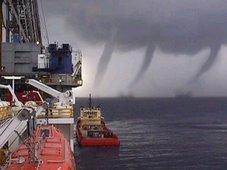
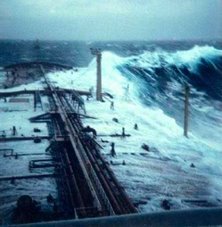
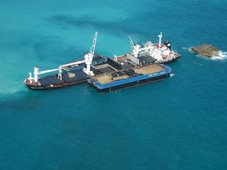
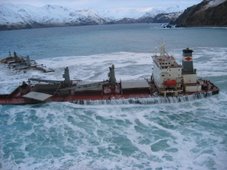
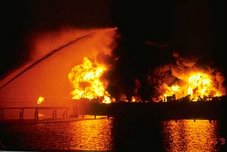
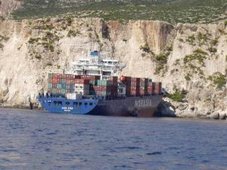
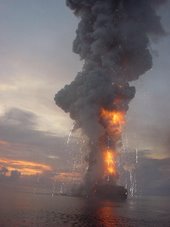

![Validate my RSS feed [Valid RSS]](valid-rss.png)
No comments:
Post a Comment